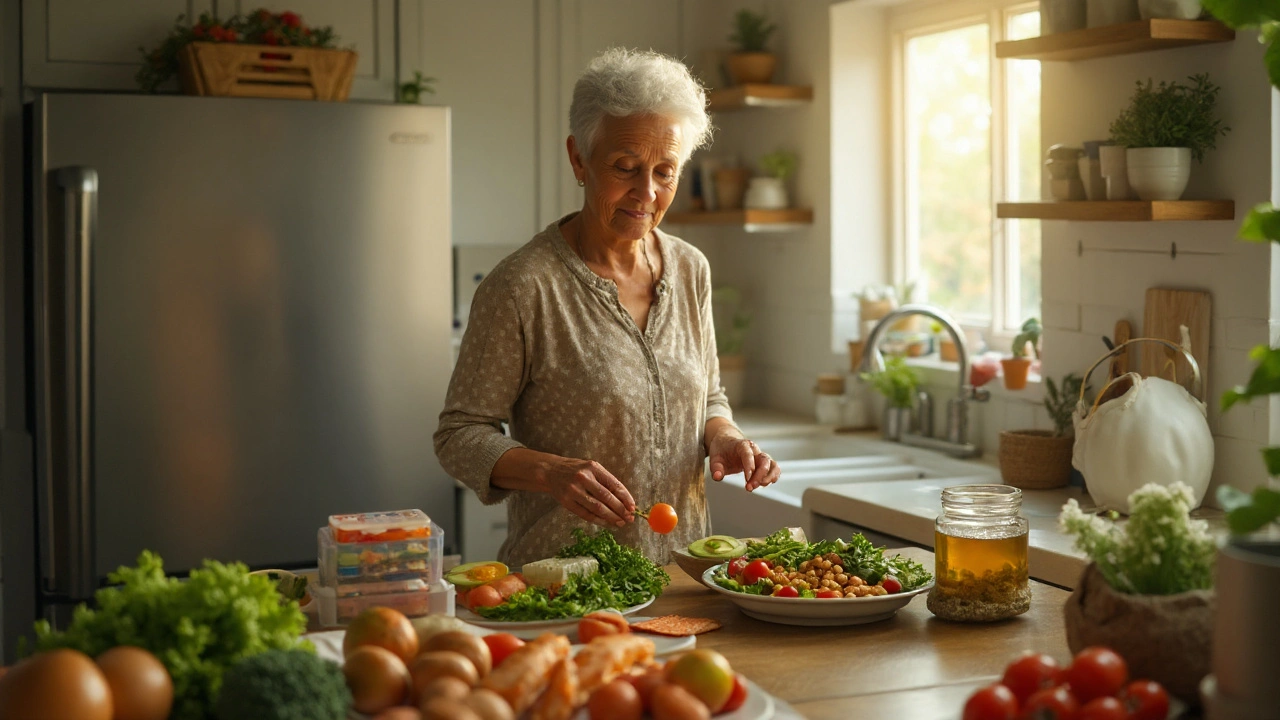
Vitamin K and Warfarin: How They Work Together
If you take warfarin, you already know it helps stop blood clots. What you might not realize is that vitamin K can pull the rug out from under it. Vitamin K is the nutrient that tells your body to make clotting proteins. Warfarin blocks that process, so when you eat a lot of vitamin K, the medicine can become less effective. This guide shows you the basics, the foods to watch, and simple steps to stay on track.
Why Vitamin K Matters for Warfarin Users
Warfarin’s job is to keep the blood thinner than normal. It does that by stopping vitamin K from doing its clot‑making job. When you eat a lot of leafy greens, broccoli, or other vitamin K‑rich foods, you give your liver more of the vitamin it needs to make clotting proteins. The result? Your INR (the blood‑thinning test) can drop, and you risk a clot.
On the flip side, if you cut vitamin K out completely, your INR can swing too high, increasing bleeding risk. The key isn’t to avoid vitamin K, but to keep your intake steady. Your doctor will set a target INR range, and staying consistent with vitamin K helps keep that number stable.
Practical Tips to Keep Your INR Stable
1. Know the high‑vitamin‑K foods. Spinach, kale, collard greens, lettuce, cabbage, broccoli, Brussels sprouts, and green beans are the big ones. Even some oils, like soybean and canola, have vitamin K.
2. Measure, don’t eliminate. If you usually eat a big salad, try to keep that portion about the same every day. If you have a day with a stir‑fry, use a similar amount of broccoli each time.
3. Talk to your pharmacist. They can help you track how your diet lines up with your INR checks. Some people keep a simple food log for a week and share it at their next appointment.
4. Adjust only with a doctor’s OK. If you need to change your diet dramatically (for example, you’re moving to a low‑carb plan that cuts greens), let your doctor know. They may tweak your warfarin dose and re‑check your INR.
5. Stay hydrated and stay active. Dehydration or sudden changes in activity can affect how warfarin works. Drinking enough water and moving regularly helps keep everything balanced.
Remember, the goal isn’t to turn your plate into a desert. Vitamin K is essential for health, so you’ll still enjoy veggies—just keep the amount steady. By watching your intake, checking INR as scheduled, and staying in touch with your healthcare team, you can keep warfarin working the way it should.
